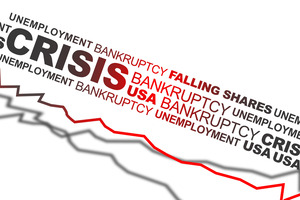Responsibilities of a Co-signer
Many people with low credit scores who find getting a loan difficult are sometimes able to borrow money if they have a co-signer. There are responsibilities of a co-signer that they should be aware of. Co-signers accept legal liability for a loan. They essentially vouch for the person applying for the loan, agreeing to repay the money if the primary borrower is unable or unwilling to do so. In most cases, the co-signer would need to have strong credit in order to receive approval for the loan.
Some people assume if they file for Chapter 7 bankruptcy, loans that were co-signed by someone else will be eliminated in much the same way as the rest of their debt. Unfortunately, co-signers are still held liable even if other debts are discharged. This backup responsibility was the lender’s entire reason for requesting a co-signer. They wanted to ensure someone will be able to pay the debt if the primary borrower is unable to.
Co-signers are common, especially for people who have little to no credit, or for those whose credit is less than perfect.
How Bankruptcy Affects Co-signer Liability
One of the benefits of filing for bankruptcy is stopping the creditor harassment that comes with overdue bills. Once you file, lenders are restricting from contacting you. However, if you have loans with co-signers, lenders are free to pursue the co-signer and demand payment. This means you could be living without any creditor harassment, while your co-signer is facing an onslaught of calls and mail regarding your loan.
Creditors are also able to sue co-signers for payment if the primary borrower files for Chapter 7 bankruptcy, as long as it is within the statute of limitations. Statutes of limitation vary from state to state. You can find more information about your state’s statute of limitations on debt here.
What Can You Do?
If someone co-signed a loan for you and he/she is facing demands for payment from creditors, there are a few things you can do to remedy the situation. Reaffirming the debt makes you liable for it and means you will be expected to pay it off. It is also possible to stop a discharge and make payments on the loan. Both eliminate co-signer liability and place the responsibility for the original debt with you.
Keep in mind, lenders aren’t usually willing to work with you if it means releasing co-signers from liability. Most want to keep as many options open as possible when it comes to getting repayment of the loan.
If you are a loan co-signer, there is little you can do if the debt is legitimate and the borrower for whom you co-signed is unwilling to take responsibility for it. The debt for which you are now responsible can affect your credit and wreak havoc in your life if you refuse to pay it. There are some civil options you have to recoup the money. However, there isn’t much you can do to avoid responsibility. This is why it is so important to carefully consider the risks before co-signing for a loan.
Are you facing a difficult financial situation? Are you concerned your loan co-signers could be harmed by your actions? Are you are looking for ways to deal with shared debt? We can help. Contact the Law Offices of Robert M. Geller at 813.254.5696 to discuss your situation.




























![Signs That You May Need to File Bankruptcy [Infographic]](https://djml3wkzi26ea.cloudfront.net/wp-content/uploads/2021/01/signs-chap7-v-chap13.jpg)
![How To File for Bankruptcy [Infographic]](https://djml3wkzi26ea.cloudfront.net/wp-content/uploads/2020/07/bankruptcy-steps-infographic-web.jpg)










